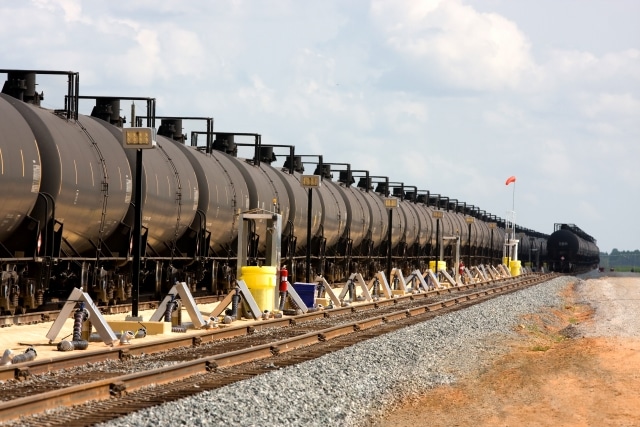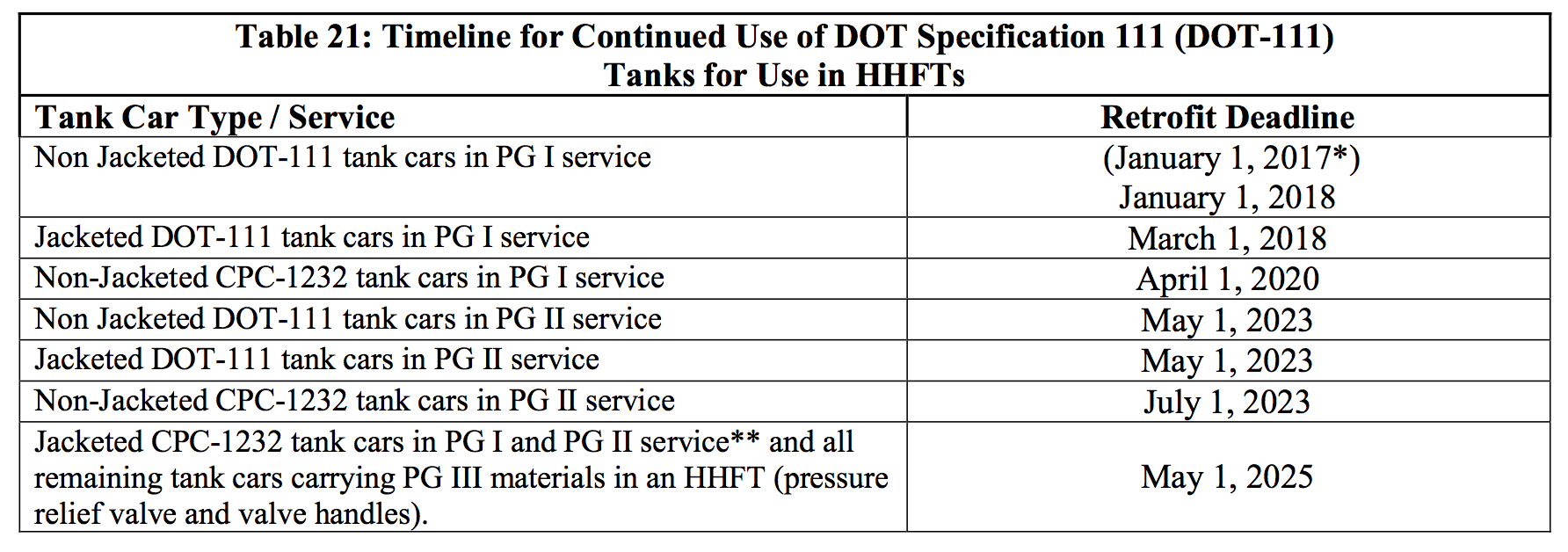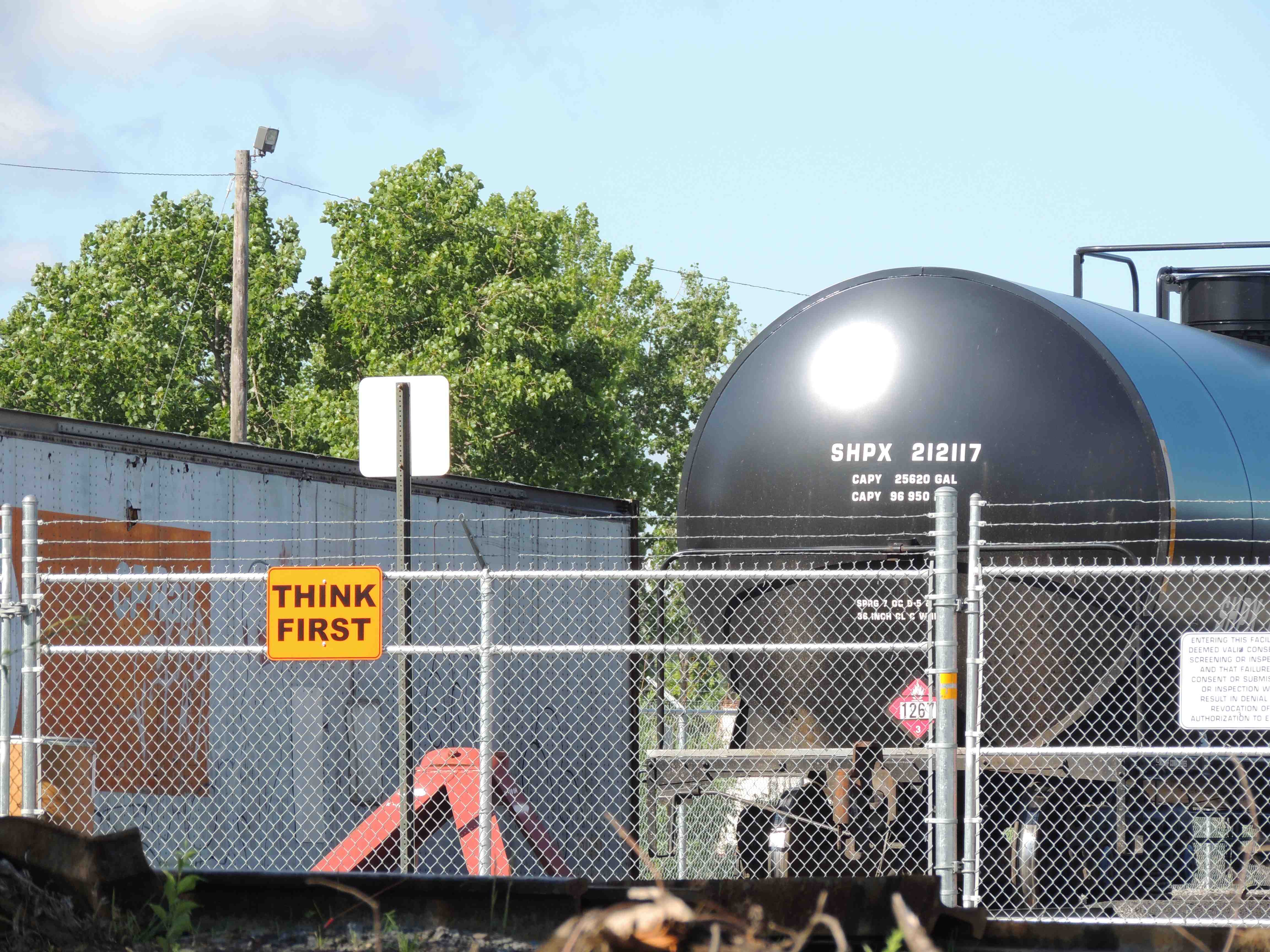The long-awaited oil-by-rail regulations released today are basically a guidebook for the oil and rail industries to continue doing business as usual when it comes to moving explosive Bakken crude oil by rail.
DeSmog recently reported on how the Obama administration has worked behind the scenes to help achieve the oil industry’s top goal when it came to these new regulations — allowing the oil producers to continue to put the highly volatile Bakken crude oil into rail tank cars without removing the natural gas liquids that make it such an explosive mixture.
As we’ve reported, there is a relatively simple fix to end, or significantly reduce, the “bomb train” disasters, via a process known as stabilization.
But the new regulations not only give the industry a pass on doing this, they add to the “we need more research before we do anything” approach that is the preferred tactic the industry and regulators are using to delay addressing the issue.
On page 232 of the new regulations, they state the following:
Any specific regulatory changes related to treatment of crude oil would consider further research and be handled in a separate action.
If you are a Bakken oil producer, that one sentence out of the close to 400 pages of new regulations is all you need to know. Time to start writing thank you notes to your lobbyists.
As Al Jazeera recently reported, quoting a professor of petroleum engineering at the University of Houston who was commenting on the science of Bakken crude:
“The notion that this requires significant research and development is a bunch of BS.”
A similar sentiment was expressed in an editorial published by RailwayAge earlier this week responding to the Department of Energy announcement that it will study the issue of Bakken oil volatility for the next two years.
There was no response from the Department of Energy to our request for more information about the study, specifically why it needs two more years to figure out what by now should be obvious to the dullest high school chemistry student.
Obvious to dull high school chemistry students — and yet requiring years more of study by the Department of Energy — while the oil industry profits and trains keep exploding.
While it was a great day for the oil industry, if you are one of the 25 million people living in the bomb train blast zones, this lack of regulation of the oil itself is very troubling.
And the rest of the new rules won’t provide much more comfort to the people in the bomb train blast zones.
The last Bakken oil train accident in the U.S. was in Galena, Illinois. It involved jacketed CPC-1232 tank cars which are the “safest” tank cars currently on the rails. And yet they still ruptured and there was the typical fire and explosion seen in other Bakken oil-by-rail accidents.
According to the new regulations, jacketed CPC-1232 tank cars will be allowed for untreated Bakken oil transportation until May 2025.
So, for the next ten years, trains like the one that crashed in Galena will continue to carry volatile Bakken oil. Meanwhile, the most dangerous cars, the notorious unjacketed DOT-111’s, will continue in service carrying volatile crude until 2018.
This means the cars involved in Lac Megantic — unjacketed DOT-111s — will have been allowed on the rails for almost five years after that deadly accident. And recall, it’s been 20 years since the National Transportation Safety Board first warned against using these tank cars to transport flammable products like volatile crude oil.
From Tank Cars To Brake Improvements, Public Safety Takes A Back Seat
Another safety measure that the rail industry has lobbied against extensively has been modern braking systems known as electronically controlled pneumatic (ECP) brakes. In today’s press conference, Secretary Foxx surprisingly highlighted the fact that ECP brakes were very important for improving rail safety and that they were part of the new regulations.
According to the new regulations unit trains of oil that has been classified as the most flammable packing group (Packing Group 1) will be required to have ECP brakes by 2021. For the less flammable Packing Groups II and III they won’t be required until May of 2023.
The oil involved in the Lac Megantic disaster was Packing Group II. So, a couple of months before the 10-year anniversary of that disaster, trains like the one that crashed there will finally need to have modern braking systems.
A decade later.
As noted on DeSmog before, the Lac Megantic disaster was initiated by failure of the “19th century technology” air braking system on that train. This is thee same braking system used on the majority of oil trains that will be allowed by the new regulations for at least another eight years.
Additionally, at the press conference, Secretary Foxx did note that since ECP braking is something the rail industry has lobbied against, it was likely that there could be a legal challenge to this requirement, but that he believed the new regulations would prevail in the courts.
Seeing that the rail industry has managed to avoid implementing Positive Train Control, a congressionally mandated safety measure from 2008, and has stated they will miss the completion deadline of 2015 and will require at least another five years to implement Positive Train Control, it is probably unlikely they will meet these new targets for modern ECP braking systems.
And as there have been no penalties for operators failing to implement Positive Train Control, there really is no incentive for them to change their behavior.
With the oil industry getting exactly what it wanted and the lengthy phase-in timelines for all of the other safety measures in the new regulations, David Turnbull of Oil Change International concisely summed up the reality of these new regulations.
“The announced regulations are yet another indication of how dangerous energy policies written by and for Big Oil are for our communities and our climate. These weak regulations allow the industry to continue endangering communities with bomb trains that facilitate hazardous expansion of the oil industry.”
As Turnbull notes, these regulations are essentially a 400-page pass for the oil and rail industries to continue business as usual.
Secretary Foxx made a comment at the press event that is likely to go down in history as an incredible understatement as Bakken trains continue to crash and explode over the next decade.
“We could have both been more aggressive, but at some point, the manufacturers aren’t going to be able to produce the tank cars we need.”
They could have been more aggressive…but…they were not. One brief moment of clarity in the time Foxx spent dodging questions and letting everyone know that today was a “big step” and “unprecedented” and “shouldn’t be understated.”
Today’s news should not be understated. Big Oil and Big Rail won. And the public lost.
Image credit: Justin Mikulka
Blog image credit: Oil tanker rail cars stretch into the distance, via Shutterstock.
Subscribe to our newsletter
Stay up to date with DeSmog news and alerts








